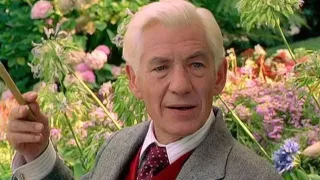
3 hours ago
From Runaway to Publisher: David Stern's "Elevator Boy" Reclaims Queer History with Raw Honesty and Unshakeable Resilience
READ TIME: 5 MIN.
On May 25th, 1976, David M. Stern's life fractured in a way that would shape every chapter that followed. His father fell down an elevator shaft on his way to work—a tragedy that Stern was just weeks away from turning 16 when it happened . But this wasn't just any family loss. In those final days before his death, Stern's father had discovered his son's sexuality, and the knowledge hung between them like an unspoken reckoning. The trauma of losing a parent while simultaneously grappling with the terror of being outed in a household that had already proven hostile to his queerness created what Stern describes as a fragmentation of his brain—a shattering that would take decades to process .
Within months, the young Stern made the decision that countless queer youth have faced: he ran. At 16 years old, with literally no clothes or money to his name, he arrived on Hollywood Boulevard as a runaway, desperate to escape the volatile and abusive environment that had become unbearable . His godparents, whom he'd hoped would offer refuge, hung up the phone on him. His mother had already preemptively painted him as a problem—a runaway, a troublemaker—ensuring that no one would take him in .
What happened next is the kind of queer history that rarely makes it into mainstream narratives, but absolutely should. A drag queen—a woman named Sugar Love, a transgender hooker working the streets of Hollywood—saw this frightened, homeless kid and extended the kind of radical care that has defined queer survival for generations . This is the through-line of Stern's memoir: the recognition that the LGBTQ+ community's greatest strength has always been its capacity to show up for its own when nobody else would.
Stern doesn't shy away from the messiness of his survival. The memoir dives unflinchingly into drugs, sex, and the complicated ways a traumatized teenager navigated a world that was simultaneously offering him freedom and putting him in danger . He was stealing money, using substances to numb the unbearable weight of his circumstances, and trying desperately to forget the fractured memories that haunted him .
But here's where the narrative refuses to be a simple cautionary tale: Stern's life on the streets of 1970s Hollywood was also where he discovered his passion for media, for storytelling, for building platforms. Even as he was surviving hand-to-mouth, he was consuming the press, falling in love with the power of words to shape reality and visibility . This wasn't some noble redemption arc imposed from the outside—it was a genuine spark that kept him tethered to possibility even when everything seemed hopeless.
What makes "Elevator Boy" particularly vital for contemporary queer audiences is how it captures a specific historical moment: the era when LGBTQ+ media wasn't just a nice-to-have, it was a lifeline. Stern went on to co-found IN Publications, which later acquired Frontiers Media, becoming the publisher of Frontiers magazine and the Gay and Lesbian Yellow Pages . These weren't vanity projects—they were essential infrastructure for a community that was being systematically erased by mainstream media and government institutions.
But Stern's rise to prominence was inextricably intertwined with one of the darkest chapters in queer history: the AIDS crisis. The memoir doesn't treat AIDS as a historical abstraction; it's woven throughout as a lived, devastating reality that claimed friends, lovers, and mentors . Stern writes about the lesbians who stepped up to care for their dying brothers when the world had abandoned them, about the specific grief of watching brilliant people diminish, about the impossible weight of bearing witness to collective trauma .
One particularly poignant thread involves Stern's close friend Michael, whose story Stern devoted years to telling within the pages of this memoir. Michael's slow decline into dementia, his fierce insistence on maintaining his independence and privacy even as his mind fragmented—this becomes a meditation on friendship, loss, and the ways chosen family sustains us through unbearable circumstances . It's the kind of intimate, unglamorous grief that rarely gets documented, but absolutely deserves to be.
What's striking about Stern's journey to actually writing this book is how long it took. He began"Elevator Boy" over a decade ago, after walking away from the Frontiers empire, but it took that entire span of time before he could face his past and translate it into words . When he finally did sit down to write the chapters about his suicide attempt, the process was so triggering that he entered two years of EMDR therapy to process the memories .
This isn't incidental detail—it's central to understanding what this book actually is."Elevator Boy" isn't a polished, carefully curated narrative designed to make Stern look good. It's a raw, sometimes uncomfortable excavation of trauma, survival, and the complicated ways we learn to live with what we've endured. Stern doesn't present himself as a hero; he presents himself as a person who made mistakes, who wasn't always a good caregiver, who struggled with addiction and rage and the kind of internalized shame that the queer community knows intimately .
What Stern wants younger queer people to understand most is something that feels increasingly urgent in 2025: the common thread connecting the teen runaways of the 1970s and the AIDS survivors of the 1980s and 1990s is how the LGBTQ+ community came together and took care of their own . It's a lesson that feels almost defiant in a moment when queer rights are, as Stern notes, once again at risk.
The book also grapples seriously with forgiveness, particularly around Stern's relationship with his mother—a relationship that was tumultuous and complex, marked by her outing him to a private detective she'd hired . Yet Stern found his way to a place of forgiveness, not because it was easy or because his mother's actions were justified, but because holding onto rage was ultimately a burden he couldn't sustain. This too feels like essential wisdom for a community that has every reason to be angry, but also needs to find pathways toward healing.
"Elevator Boy: An Otherworldly Memoir" is being released at a moment when queer history feels simultaneously more visible and more under threat than it has in years . There's something almost defiant about Stern's decision to publish this book now—to insist that these stories, these lives, these struggles and triumphs belong in the historical record. The book reads like a novel, according to reviews, which means it has the power to reach readers who might not typically pick up a memoir .
More than that, it's a book that honors the specific contributions of LGBTQ+ media makers to queer survival and visibility. In an era when we sometimes take for granted the existence of platforms dedicated to telling our stories, Stern's memoir reminds us that these platforms were built by people who were themselves surviving, grieving, and fighting for a future they might not live to see.
The through-line of"Elevator Boy" is ultimately one of queer joy—not the sanitized, corporate version, but the fierce, hard-won joy that comes from surviving together, from choosing family, from deciding that your story matters enough to tell . That's a message the queer community needs to hear right now.






